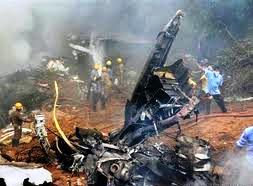
New Delhi, March 12: With air traffic growing, the Government on Monday said it would set up a Civil Aviation Authority to make air travel safe and secure and take steps to modernise more airports and air traffic management services.
It would also set up an independent air accident probe panel and initiate measures to protect the interests of air travellers.
These promises were made by the Government in President Pratibha Patil's address to the joint sitting of Parliament.
"Measures will be taken to protect the interests of air travellers. A bill will be introduced this year for a Civil Aviation Authority to ensure safe, secure and affordable air services," Patil said.
She said an independent Air Accident Investigation Board would also be constituted and "air traffic management services and airports will be upgraded and modernised".
A legislation to set up a powerful Civil Aviation Authority (CAA) for better regulation of the aviation sector has already been drafted and was in an advanced stage of getting the official nod, official sources said.
They said the draft was being vetted by the Law Ministry and would be taken up by the Union Cabinet for approval before it is placed in Parliament.
The functions and powers of the proposed CAA, which would replace the Directorate General of Civil Aviation (DGCA), have been based primarily on the British model.
It would have financial and administrative autonomy to take expeditious decisions on matters relating to a range of activities - from regulation of air traffic services and licensing to ensure financial fitness of airlines, they said.
The CAA would take over the responsibilities of the DGCA in areas like air safety, airspace regulation, setting aviation standards, licensing of airlines, pilots, air traffic controllers and consumer protection.
The government also proposes to provide certain economic regulatory functions to the new authority, including airfares and areas like consumer protection, environmental research and consultancy.
The CAA would come up at a time when the total aircraft fleet in India stood at over 450 and is estimated to cross 1,000 in a few years. In addition, there are over 200 helicopters and private jets.
The passenger handling capacity of Indian airports, which was just 66 million in 2005, has reached 225 million now and is expected to cross 500 million in the next 10 years.
An accident investigation panel is being proposed to separate the functions of the DGCA of making rules and monitoring whether these were being followed in cases of accidents and air incidents.
Government had in May last year created an independent panel to probe aviation accidents, separating the roles of regulator and investigator being performed by the DGCA alone.
This panel was created a day after the Faridabad air crash that claimed 10 lives. It was a step forward towards establishing an independent investigation system which would now be given effect.
The idea to separate regulatory and investigation functions, in accordance with recommendations of the UN body International Civil Aviation Organisation, was mooted in 2010 by then Civil Aviation Minister Praful Patel soon after the Mangalore air crash that claimed 158 lives.






Comments
Add new comment